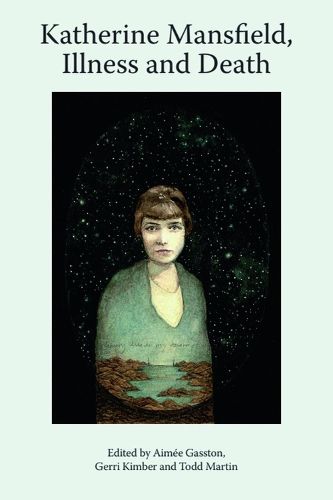Readings Newsletter
Become a Readings Member to make your shopping experience even easier.
Sign in or sign up for free!
You’re not far away from qualifying for FREE standard shipping within Australia
You’ve qualified for FREE standard shipping within Australia
The cart is loading…






During Katherine Mansfield's life she experienced the effects of abortion, miscarriage, gonorrhoea, peritonitis, rheumatism and tuberculosis, and would take up a peripatetic existence constantly in search of more favourable climates. The First World War of 19141918 and the influenza pandemic of 191820 informed the zeitgeist of her times. This volume of essays explores the extent to which this resonant context of disease and death shaped Mansfield's literary output and her modes of thinking. Illness both stimulated and limited Mansfield's creativity she would write to fund her medical care while simultaneously limited by her poor health, writing in 1922: 'The real point is I shall have to make as much money as I can on my next book my path is so dotted with doctors'. As explored in this volume, her personal writings document the increasing influence of tubercular literary predecessors such as Anton Chekhov and John Keats, while her stories function compellingly as dialogue with loved ones who have been lost her brother, her mother, her grandmother endowing them with life in the process.
$9.00 standard shipping within Australia
FREE standard shipping within Australia for orders over $100.00
Express & International shipping calculated at checkout
During Katherine Mansfield's life she experienced the effects of abortion, miscarriage, gonorrhoea, peritonitis, rheumatism and tuberculosis, and would take up a peripatetic existence constantly in search of more favourable climates. The First World War of 19141918 and the influenza pandemic of 191820 informed the zeitgeist of her times. This volume of essays explores the extent to which this resonant context of disease and death shaped Mansfield's literary output and her modes of thinking. Illness both stimulated and limited Mansfield's creativity she would write to fund her medical care while simultaneously limited by her poor health, writing in 1922: 'The real point is I shall have to make as much money as I can on my next book my path is so dotted with doctors'. As explored in this volume, her personal writings document the increasing influence of tubercular literary predecessors such as Anton Chekhov and John Keats, while her stories function compellingly as dialogue with loved ones who have been lost her brother, her mother, her grandmother endowing them with life in the process.